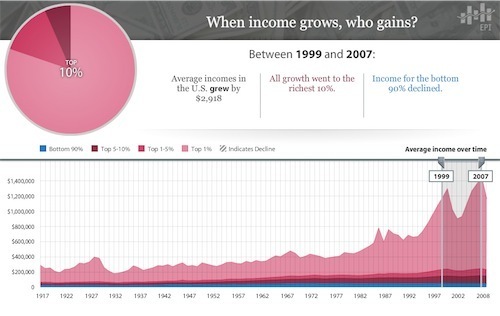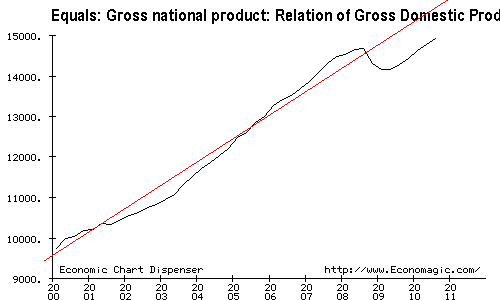Matthew Yglesias's Blog, page 2424
February 10, 2011
Let Obama Be Obama!
I'm not usually a fan of "prisoner of the staff" type arguments, but reading this LA Times account of an Obama administration divided between advocates of pressing for change in Egypt (Ben Rhodes and Samantha Power) and those who prefer a more modest approach (Hillary Clinton and Robert Gates) I can't help but notice something.
There were good reasons to keep Robert Gates on as Secretary of Defense. And there were good reasons to make Hillary Clinton Secretary of State. But an odd consequence of the move was to leave surprisingly little room on the team for people such as Rhodes and Power who were Obama suporters from the get-go. This is a strange state of affairs on the subject where the president has the most autonomy from congress and also where policy preferences are least determined by partisan coalitions. I was an Obama supporter from way back primarily because of his statements and records on foreign policy issues, and now here we are faced with a real split between that original vision and the views of the national security establishment. I think this is an issue where the perceived interests of the permanent security elite diverge from those of most Americans and Obama would do well to listen to the Obama-ists on his team.


The Limits of Journalism

Jon Bernstein had a good op-ed earlier this week about the Obama administration's strange neglect of judicial appointments. Brendan Nyhan observes that you could say the same about the Fed. John Sides wonders why we don't see any reporting on this from the oodles of journalists who cover the White House.
It's an interesting question that in some ways cuts to the heart of everything that's wrong with reporting. Nobody reports on Obama not prioritizing judicial nominations because people only report on the things that are happening. "Liberal Judicial Groups Slam Obama For Neglecting Judiciary" is a story you write, whereas "Obama Neglecting Judiciary" isn't. In the real world the fact that Obama is neglecting the judiciary is a bigger deal than the extent to which groups are or are not slamming him over it, but that's not how it looks to the conventions of journalism. Meanwhile, an interesting sub-story to this is that liberal judicial groups haven't generally tried to gin up such headlines. That's a tactical decision they made based on what they think their best strategy is. But that means that if you did try to write the "Obama Neglecting Judiciary" story you'd have a big problem. The people in the best position to give you detailed complaints on this subject have made a tactical decision to avoid ginning up headlines about them attacking the White House. So the people who know won't tell you. They won't tell you, that is, unless they think you won't be doing a high-profile story about it.
On the Fed, my best understanding is that they just didn't think the Board of Governors nominations would matter. In retrospect, I think that was a huge (and still underrated) mistake but they made it at the time for the pretty good reason that for the past two or three decades nobody saw instances of BOG nominations mattering to monetary policy.


Greenfield Transit Development
Dan Chinoy hops a ride onto a newish Beijing subway line:
As we went farther north, the crowd slowly thinned, eventually leaving me sharing a car with a pair of giggling, stylish Chinese girls playing with their iPhones, a couple evidently going to a costume party — the guy in a pirate hat, the girl wearing rabbit ears — and several young men in Air Jordans and Nike jackets. Once we arrived, I followed the couple up the escalator from the platform, stepped outside — and into the rubble of what was apparently once a small, poor, rural village.
I had, I realized, arrived in the vast borderland between Beijing's urban center and its rural surroundings. The remnants of a farm were visible down the street, and a growing block of new high-rise apartments and cranes loomed jarringly in the distance. A brand new, almost empty highway implied expectations of greater things to come — expectations that perhaps also explained why it was necessary to put a rail station in a rural area underground.
This is, in principle, exactly what a growing city ought to do. When it comes to highways, people seem to get this. You don't wait for suburban homes and shopping centers to get all build and filled in and then say "we need a highway." Where would you put it? What you do is you build the highway in the expectation that the existence of infrastructure will make it an attractive place for development. Obviously it's possible to miscalculate with this decision, but it's also possible to get it right. Before cars existed, people also understood this. You build out the rail network first (that can be Upper Manhattan or it can be the Transcontinental Railroad) and then people start building structures at rail-appropriate density at the places the rail transit serves. Either way, a city expecting to grow needs to make some infrastructure plans. And the plans determine development patterns. A station in a former village outside of Beijing doesn't "need" to be underground, but if you build it underground then a certain sort of place can grow around it that wouldn't be feasible if you ran the trains in a highway median.


Social Impact Bonds And Their Limits

There are lots of things the public sector is involved with that are incredibly valuable if they actually work, but they're often difficult to do and the public is naturally reluctant to support policy interventions that they don't think are going to accomplish anything. David Leonhardt touts one potential solution to the problem, so-called "social impact bonds" that function as a kind of loan to service-providers:
The idea goes by one of two names: pay for success bonds or social impact bonds. Either way, nonprofit groups like foundations pay the initial money for a new program and also oversee it, with government approval. The government will reimburse them several years later, possibly with a bonus — but only if agreed-upon benchmarks show that the program is working.
If it falls short, taxpayers owe nothing.
What we tend to do right now is first look at a problem that it would be hugely valuable to solve, then we discount what we're willing to spend on solving the problem for our estimate of the low probability of succes. The result is that we appropriate less money than it would be worth spending to solve the problem, but with no guarantee that our intervention is helping at all, and with some surety that if our intervention is helping we're not doing enough of it. Then you get growing cynicism and passivity. The "impact bond" structure could solve that. It could allow a situation whereby successful policy interventions get lavish funding, failed ones get no funding, and the public grows more optimistic and generous about solving social problems. Obviously, though, there are about a thousand practical issues with this. Jeffrey Liebman has a report for CAP looking at many of them and how they can be solved.
I do, though, have a concern about this on another level. The underlying presumption of the proposal is that our programs lack efficacy because of a technical problem that needs a technical solution. I'd say we have something closer to a cultural or ethical problem. I think we had a version of that in DC when people were pretty openly saying that the city government should be seen as a jobs program, rather than a provider of high-quality social services. And we have it when Representative Roy Blunt (R-MO) openly talks about how it's more important to protect farm subsidies than to feed poor families. SNAP is a program that could be improved. But you can see from Rep Blunt's attitude that he doesn't want it to be improved. He suffers from an ethical disorder in which he's not interested in the well-being of poor Americans. And he's operating in a political culture where this fact isn't something he's trying to hide, he's discussing it openly in newspapers. Given Blunt's views about the merits of funding farm subsidies vs funding nutrition assistance, it's clear that given the opportunity to tweak SNAP program design Blunt would not be interested in increasing its efficacy as a nutrion program—he'd want to increase its efficacy as a hidden subsidy to agribusiness.
Which is all just to say that politicians can always screw things up if they want to.


Visualizing Unequal Growth
Via Kieran Healy, an excellent EPI data visualization tool that lets you dramatize some of Emmanuel Saez's findings about inequality:

I think this way of looking at things ends up underestimating the gains of technological progress, but that's always been true. The fact remains that in recent decades a much higher than usual share of growth has ended in the pockets of a narrow elite composed largely of financiers.


Why Not Me?
Kevin Warsh is stepping down from the Federal Reserve's Board of Governors. And I'd like to replace him!
Here's my plan. We're going to start with this chart of total spending:

We're going to say that the goal is to catch up with that red line. To that end, I'll be phoning up random people and asking if they want to participate in my new Sock-Backed Lending Facility in which the Fed offers you a non-recourse loan of $100 in exchange for a pair of old socks. And I'm going to keep calling, keep offering, keep lending, and keep sock-collecting until we hit the line. Congress will complain, and Paul Krugman will worry that the promise isn't credible, but it'll be fine because I'm a writer who has no real desire for public office. I'll serve my term implementing my insane scheme, and when I'm done I'll write an awesome book about it.


Magical Beer and Regulatory Rents
Productivity growth in the tap beer sector:
Behold, the Bottoms Up Draft Beer Dispensing System — which is now in place at the Verizon Center, says arena owner Ted Leonsis. The taps, the brainchild of GrinOn Industries, can reportedly allow one person to fill 44 pints of beer in one minute. It involves magnets, or something.
As a productivity optimist, what I'd normally tell you is that the ability to make serving beer a less labor-intensive occupation will ultimately benefit consumers. Initially, you'd see increased profits from the owners of beer-selling establishments. But that will merely attract additional capital into the beer sector, leading to more intense competition. Soon enough, the extra profit rate is competed away and the consumer surplus grows. In this particular case there are, however, a number of problems.
One is just that the NHL and NBA are semi-cartelized and it's not like competing pro basketball teams are going to come to the city. But the other is that in the more general case of selling beer, there are extreme constraints to introducing new competition. It's obvious that an additional bar in Adams-Morgan could be profitable. But it's illegal to start a new bar in Adams-Morgan. It's also illegal to start a new bar on 17th Street near Dupont Circle. Residents of Barracks Row are actually frightened that successful bars might open in their neighborhood. And, indeed, liquor license moratoria are quite frequent in the city. But even in places where opening a new bar isn't just blanket illegal, you still face a lot of regulatory hurdles to doing so. Generally speaking, people are pretty hostile to the idea of a bar opening on their block and there are a lot of tools at their disposal to block it.
Whatever you think of that, it creates an anomalous situation whereby productivity enhancing innovations in the beer-serving sector simply lead to higher rents for existing license holders. Insofar as a city wants to restrict the availability of beer-selling establishments, the smarter way to do it is with laxer regulation plus higher taxes which would ensure that productivity growth ends up in the pockets of the city (allowing for lower taxes and better services) rather than in the hands of the license holders.


License To Beg

(cc photo by Dear Edward)
Montgomery County's not run by neoliberal sellouts, that's for sure. They're true friends of the working man:
Montgomery County panhandlers such as Garnes would have to apply for permits to ask drivers for spare change under legislation [County Executive Isiah] Leggett is requesting from state lawmakers. Leggett said panhandlers often stand in the median strip of county roads — which is allowed under county law — but that many approach drivers by walking into the street, which is not.
This business about where the beggars stand is a microcosm of one of the most prominent conceptual problems here. If the issue is people violating traffic laws, then devote more resources to enforcing the traffic laws. Why devote resources to creating a beggar licensing scheme and then devote more resources to enforcing it?
At any rate, laugh at this idea if you will. But even under Leggett's plan it will be considerably easier for a poor person to get permission to beg in the street in Montgomery County than it will be for a poor person to get permission to rent a basement/attic/garage apartment from an empty nester couple that doesn't need so much space anymore.


House Republicans Eating America's Seed Corn
Here's an excellent lead from Lori Montgomery and Shailagh Murray, detailing House Republicans' FY 2011 appropriations vision:
House Republicans sketched their vision for a smaller federal government Wednesday, proposing sharp spending cuts that would wipe out family planning programs, take 4,500 cops off the street and slice 10 percent from a food program that aids pregnant women and their babies.
If it's been said once, it's been said a million times, a social conservative is someone who believes life begins at conception and ends at birth. But let's talk about crime.
Is putting cops on the street an example of public sector waste? Not according to libertarian economist Alex Tabarrok whose research shows that morepolice means less crime. Here's a
As American As Streetcars

Nowadays we think of trams as a charming European contrivance, but I recently read Henry James' The American which, among other things, indicates that in the 19th century an American traveler in Europe could see them as a slice of home:
In the charming city of Brussels–his first stopping-place after leaving Paris–he asked a great many questions about the street-cars, and took extreme satisfaction in the reappearance of this familiar symbol of American civilization; but he was also greatly struck with the beautiful Gothic tower of the Hotel de Ville, and wondered whether it would not be possible to "get up" something like it in San Francisco.
Just a reminder of how arbitrary the construction of anti-urban policies as more authentically "American" is. Our biggest, densest city is considerably bigger than any European metropolis, we pioneered rail transport to just the same extent as we pioneered automobiles, etc.


Matthew Yglesias's Blog
- Matthew Yglesias's profile
- 72 followers




